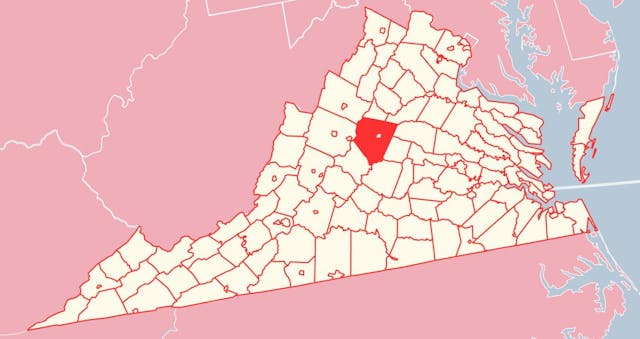Rehabs in Albemarle
Albemarle is one of the largest Counties in the state of Virginia in the US. Its county seat is Charlottesville. The total area is 726 sq mi (1,880 km2). In 2021, the population was 113,737, increasing by 16.28% over the last 10 years.
This province ranks among the healthiest areas in VA. However, substance use disorder remains the main issue. As of the 2021 data, it registered 39% of alcohol-related driving deaths. Eight people died from overdoses of drugs.
So, the population has succeeded in overcoming the major crisis. Thus, Albemarle County rehabs do everything to keep communities from using drugs and alcohol.
Drug and Alcohol Evaluation
All patients in this province, without exception, should pass the assessment. In essence, it provides a licensed assessor. This process aims to get medical details and behavioral and physical issues of visitors. The gathered information will help specialists orient what program a person needs.
Rehab Programs in Albemarle County
There are numerous rehabs in Albemarle County. Some of them provide specific treatment only on opioids. Others focus on either outpatient or residential programs. Yet, each of them uses its unique healing methods. They all have one goal: to improve the lives of residents and create a healthy community.
Detox
Detox is a medical intervention that allows the patient's body to get rid of toxins. Though, it is not a mandatory condition. If someone has taken large amounts of opiates, pain relievers, or alcohol, then detox is necessary.
Those who have abused a certain amount of alcohol, cocaine, and marijuana will have mild symptoms. That is, people can recover immediately.
Inpatient (IP)
When people struggle with addiction, they often fail. Different events in people's lives can negatively affect and stress them. As a result, the person starts using the chemicals again. In this case, the only solution is a long-term cure. It provides inpatient care. Living in a residential facility, patients stay away from a stressful environment. Moreover, the housing option ensures long-term sobriety.
Outpatient (OP)
Addiction centers in this province provide OP for those who have completed the inpatient level. In other words, it is part of continuous care. OP provides support and structure for long-term sobriety.
Members take part in group therapies. Here, they share with the counselor and peers about factors that have become the cause of abuse. Then, clients tell what kind of stress they were subjected to and how to curb cravings. In short, they gain life skills and experience during group meetings.
The group session lasts 90 minutes per week. At the same time, individual meetings are 60 minutes a week.
Prices and Payment Options
There is no reason to miss treatment because of financial issues or the absence of insurance. Medical centers in this province accept various payment means. They include Medicare, Medicaid, and state or government funds. Besides, they tailor healing plans to clients’ financial needs. It means no one will be refused because of the lack of payment ability.
Additional Services for Addiction Treatment
A wide range of services exists along with the main programs or inside them. These plans include different meetings. One of them is educational sessions. Clinics provide individual and group programs for addiction support and education. These services are for:
People with suspicions about possible misuse
Court-ordered substance abuse evaluation/treatment
Job-related cases involving chemical misuse
The next type addresses families. They gather regularly to learn about the consequences of chemical misuse. They will know how it reflects on relationships and how to resolve them. Family members will be informed that the client's drug misuse is a chronic illness with psychological components.

